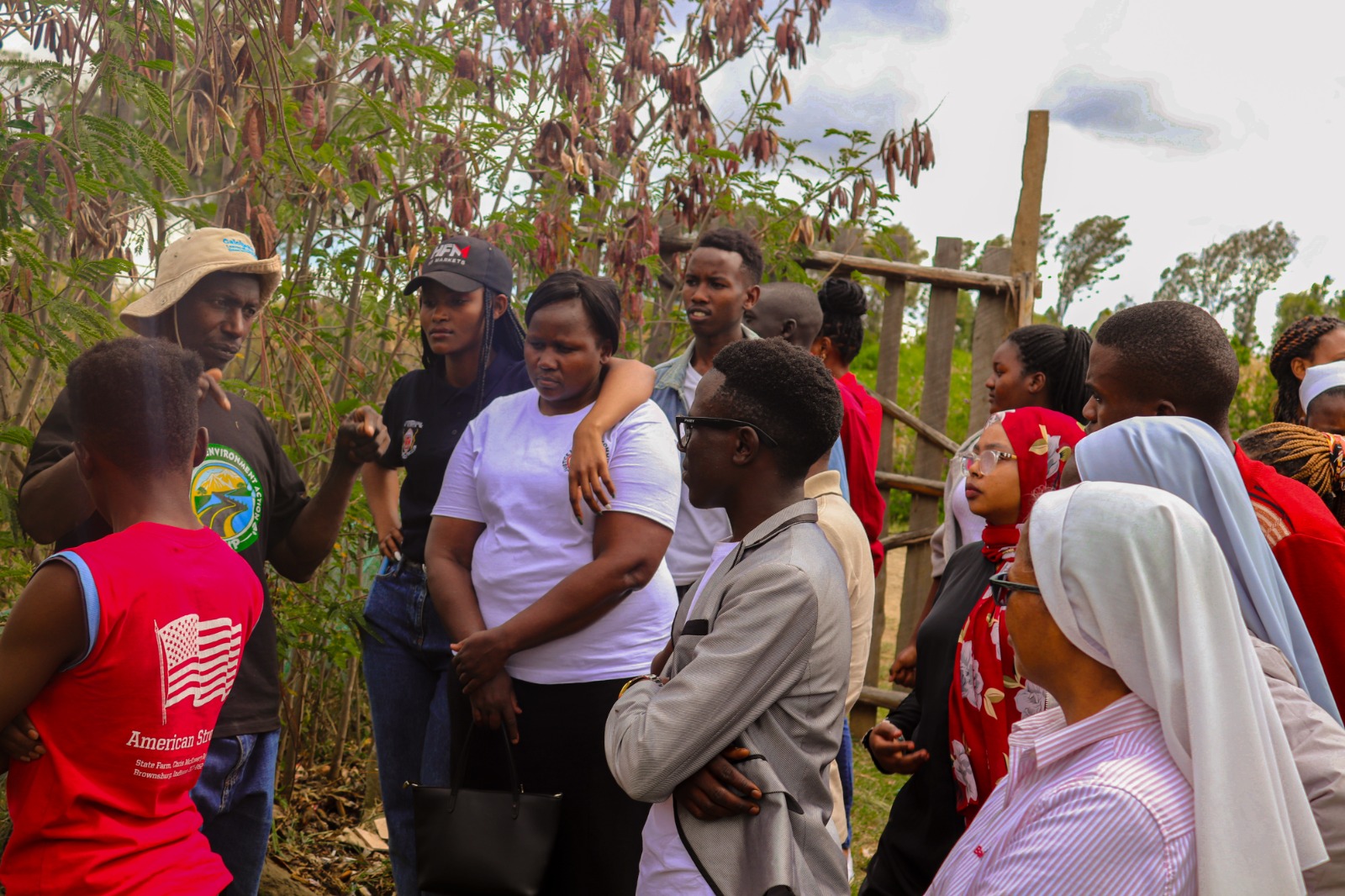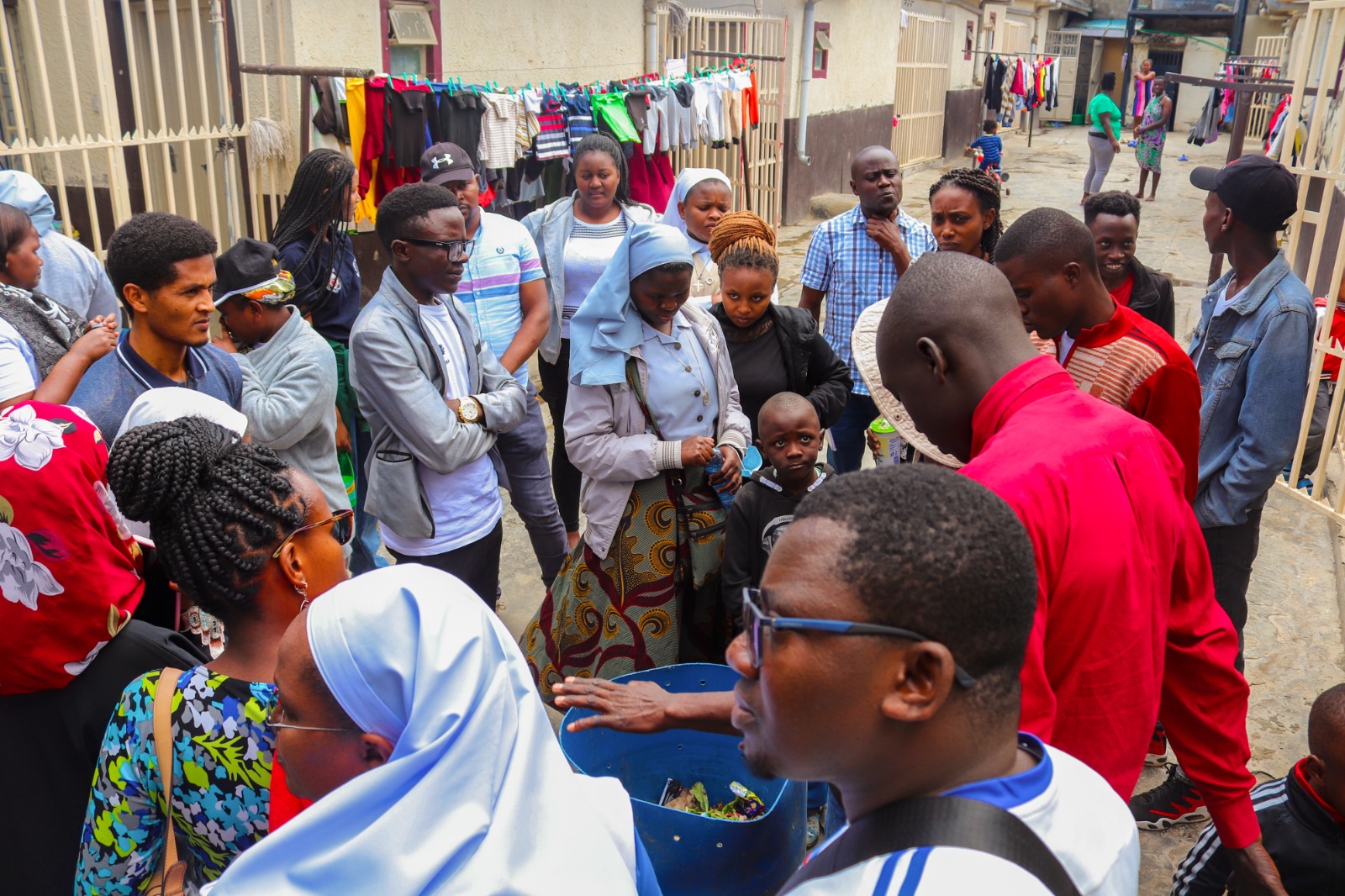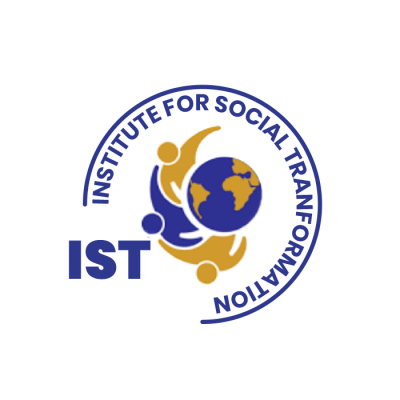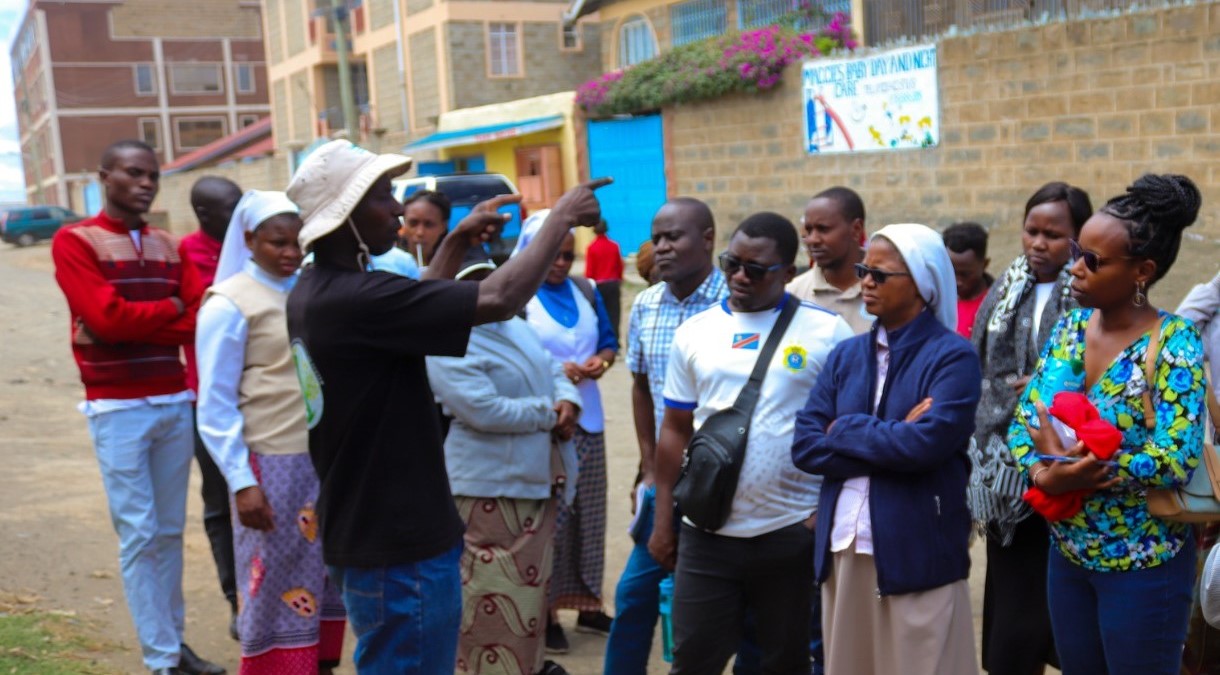
In today’s educational landscape, there’s a growing realization that traditional teaching methods may no longer suffice to equip students with the skills and knowledge needed for the complex, interconnected world of the 21st century. Our recent joint field experience with students, especially those in advocacy and ecology classes, provided tangible proof of the efficacy of a collaborative, multidisciplinary approach. This experience reiterated the urgency for change, highlighting the need to rejuvenate our teaching and learning methods. At the core of this educational transformation is the embrace of collaboration and multidisciplinary.
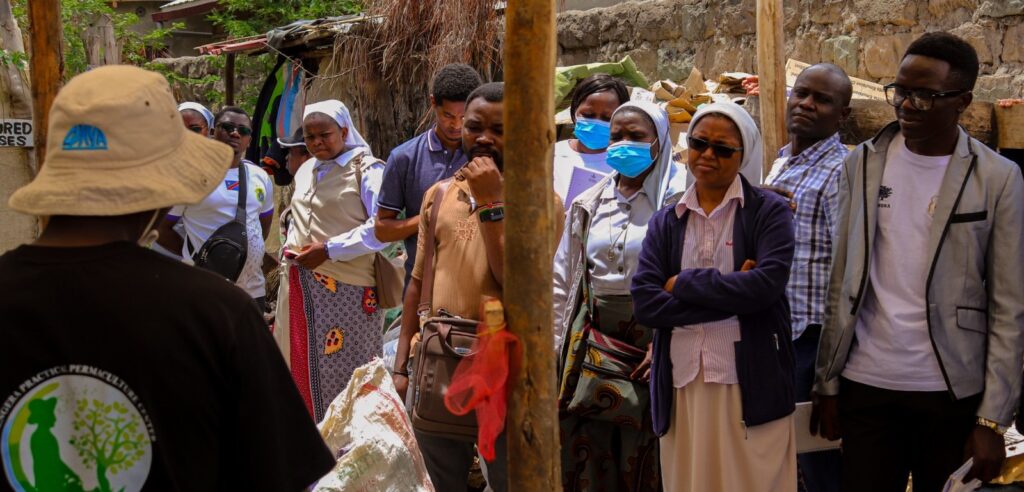
In our visit, Mr. James Kagwe, a waste practitioner and permaculture consultant, clearly demonstrated the interconnections between different disciplines. We delved into the highlights of the 2022 Waste Management Act, explored the challenges in its implementation, and examined grassroots approaches advocated by individuals like James. This exploration bridged the realms of advocacy and ecology, shedding light on the consequences of poor waste management and the opportunities arising from urbanization and population growth. His emphasis on design and resource challenges left a lasting impression. We didn’t solely focus on these course areas; we also explored topics such as culture and indigenous knowledge. The students gained insight into how our cultural heritage has eroded and how the modern world has confined us to a linear mindset, even in our food systems. Mr James, emphasized the importance of embracing diversity in all aspects, including agriculture, as the solution to our challenges. He contended that adopting a circular approach, along with multi-disciplinary and collaborative learning, expands our horizons and opens up a world of potential opportunities.
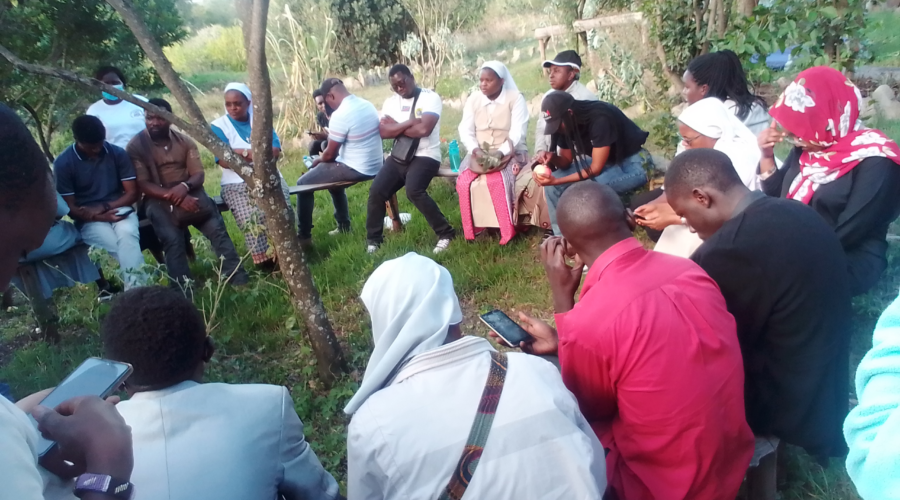
Field immersion experiences lie at the heart of this revitalization. Traditional classroom settings often struggle to provide the depth and breadth of understanding that real-world contexts offer. These immersive experiences take learning out of the confines of textbooks and classrooms and immerse it in the dynamic, messy reality where knowledge is applied. During these immersions, students engage with real-world issues, collaborating with professionals from diverse fields. This hands-on approach not only deepens their subject understanding but also sharpens their problem-solving skills and teamwork, as demonstrated by our collective tree planting at the end of the visit. Incorporating field immersion experiences into education bridges the gap between theory and practice, cultivating critical thinking, adaptability, and effective collaboration among students from diverse backgrounds. These experiences also nurture a sense of responsibility, as students witness the real-world impacts of their decisions and actions. Students themselves expressed the interconnectedness they observed.
“Today, I have seen a lot of interconnected aspects, from soil improvement to urban waste management to food production.” – Student
As the landscapes of education and work continue to evolve, this pedagogical transformation is no longer an option but a necessity. By revitalizing education through collaboration, multidisciplinarity and field immersion experiences, we better equip the next generation to address complex challenges and seize opportunities in an ever-changing world. This is a call to action and a commitment to cultivating well-rounded, adaptable, and responsible individuals who not only thrive in the modern world but also actively contribute to its improvement.
